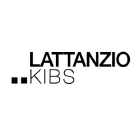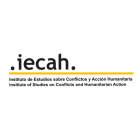Home /
MSSA / Eu budget implementation modes
EU BUDGET IMPLEMENTATION MODES
 Credit: © European Union 2019 (photographer Bertha Wangari
Credit: © European Union 2019 (photographer Bertha Wangari
Depending on the type of entity and Action to be financed, the EU’s Financial Regulation sets different working methods, known as “budget implementation” and “financing management”. In the context of DG ECHO operations, we can distinguish between:
- Direct and Indirect budget management modes;
- Co-Financing / Multi-donor and full financing modes.
When the Commission implements the action using the direct management mode, it is directly responsible for all steps in a programme’s implementation:
- launching the calls for proposals
- evaluating submitted proposals
- signing grant agreements
- monitoring project implementation
- assessing the results
- making payments
When the Commission implements the action using indirect management mode, it entrusts budget-implementation tasks to an entrusted entity, which has the responsibility of implementing the EU budget according to its own internal rules and procedures.
To be eligible to work under indirect management, the entity must be listed in article 62 c) of the Financial Regulation as entitled to work under indirect management and must undergo a comprehensive ex-ante assessment of its systems, rules and procedures (Pillar Assessment).
The Pillar Assessment exercise verifies whether the entity demonstrates a level of financial management and protection of the financial interests of the Union equivalent to that of the Commission (Principle of Equivalence).
CO-FINANCING/MULTI-DONOR AND FULL FINANCING
When establishing the rate of co-financing for the Action, DG ECHO takes into account the urgency of the Action, the availability of other donors and any other relevant circumstances, having due regard to the respect of the core humanitarian principles. On the basis of these considerations, DG ECHO may decide to finance the Action in part or, exceptionally, in full.
Partial or co-financing by the EU is the general principle underlying all EU grants and contributions. In this case, the Action is financed by several donors and/or financed partially by the Partner's own funds. All the funds are pooled together in a way that the source of funding for a specific activity is not identifiable (funds are not earmarked).
This financing modality is termed,
- as Co-Financing, for the Action implemented by the NGOs Partners; and,
- as Multi-donor, when implemented by International Organisations.
The funds that contribute to the Action are listed in the Section 13.3 of the e-Single Form and in case of contributions from other donors, more details have to be provided in its Section 13.7.
Please note that contributions in-kind (such as volunteers, goods, equipment received for free) made by other donors cannot be considered as co-financing.
DG ECHO may exceptionally finance the entire cost of the Action if:
- the Action is urgent;
- there is no availability of other donors; or
- the Action is considered as a priority by ECHO.
In case of request for full financing, the Partner must be able to duly justify the reasons in Section 13.4 of the e-Single Form.





